On June 16, a field hearing on securing America’s grid was led by Rep. Richard Hudson, who resides in Southern Pines and represents Moore County. The hearing took place at the Village of Pinehurst Hall.
Field hearings are congressional hearings held outside Washington, DC.
Hudson is with the House Energy and Commerce Committee. Fellow committee members Reps. Jeff Duncan, Morgan Griffith, Gary Palmer, Rick Allen, Larry Buschon, Randy Weber, Bob Latta, and Debbie Lesko participated in the Enhancing America’s Grid Security and Resilience hearing.
Hudson visited Moore County in December 2022 after two electrical substations were attacked by gunfire, and power outages left 45,000 people in the dark for several days.
The investigation is ongoing, with no arrests made.
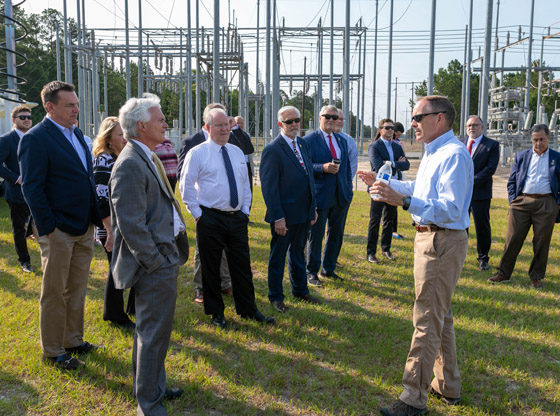
Leaders visit West End’s substation before the field hearing on June 16. Photo provided.
Rep. Larry Bucshon asked Mark Aysta, the managing director of enterprise security at Duke Energy, if the company received a warning about a threat on the substations.
“There was a national security threat sent out in November,” Bucshon said.
“We receive notices like that routinely,” Aysta said.
“I want a yes or no,” Bucshon said. “We’re talking about simple surveillance, someone sitting in an office. We talking about the loss of life.”
“When we get specific threats, we address them with law enforcement,” Aysta said.
“You didn’t do that,” Bucshon’s voice boomed, and the audience of about 500 clapped.
Aysta said Duke Energy installed three cameras after the attack.
The FBI offers a $25,000 reward for information leading to an arrest, and the Moore County Sheriff’s Office offers an additional $75,000. No fingerprints on the 12 casings at the substations have been found. But punishment for the attacks has grown more severe.
Rep. Richard Hudson discusses accountability at the field hearing on June 16, 2023, at the Village of Pinehurst Hall.
On June 15, the North Carolina General Assembly passed Senate Bill 58 unanimously. The bill increased the punishment for property crimes against utilities, including telephone, broadband, broadcast, or cable, and the production, storage, transmission, or distribution of electricity, fuel or other forms of energy.
In February, North Carolina senators Tom McInnis, Danny Britt and Paul Newton sponsored Bill 58, addressing attacks on critical infrastructure, making these attacks a Class C felony.
A Dec. 14, 2022, Security Magazine article, “The US electrical grid: Protecting our most vulnerable and needed assets” by Cody Dowd, offers insight into this nationwide issue.
Cody Dowd, CPD, is a security services project manager for Calibre Engineering and a former U.S. Army Special Forces leader. He said America had over 55,000 transformers, and an attack on nine specific transformers could cripple the power grid across the country for up to 18 months.
A security problem identified in the hearing was that substations and the electrical grid map are available online.
No security-based federal funds are available for electrical companies covering security measures and recovering after an attack, including rebuilding substations and transformers, to relieve customers of higher monthly rates.
Rep. Robert Latta and Rep. Rick Allen said they would see what they could do to generate legislation for security-based federal funds for attacked electrical companies.
In December 2022, Duke Energy Progress asked North Carolina utilities for permission to increase rates up to 18.7% to strengthen grid security and make it flexible for renewable power.
Problems identified in the hearing are the lack of partnerships between companies, law enforcement and the government. There is only one company, A1C Steel, in Cairo, Egypt, which makes transformers, and there is no guaranteed security system to prevent attacks.
Solutions identified in the hearing included training law enforcement in identifying possible threats, partnerships with law enforcement, increasing response time after attacks, and increasing monitoring.
Aysta said Duke Energy needs $75 billion in grid improvements and wants to talk to the government about replacing equipment when attacked.
“We need to have transformers stored,” Rep. Morgan Griffith said about the problem with the supply chain. “Will Duke put money on the table?”
“We can have that conversation,” Aysta said about Duke Energy’s assistance.
Rep. Bob Latta said there was a two-year turnaround for the transformers and that there needs to be more workers with the right skills for the nation’s infrastructure.
In July 2022, U.S. Department of Energy (DOE) allocated $2.3 billion in grant programs to strengthen the power grid against wildfires and other natural disasters due to the climate crisis.
In August 2022, the DOE allocated $45 million to create, accelerate, and test technology to protect our electric grid from cyberattacks.
“Everyone needs to know the full impact of this kind of attack and the urgent need to address vulnerabilities this exposes in our grid,” said Rep. Hudson. “I want to thank our local law enforcement for continuing to follow tips and leads to determine who is responsible for December’s attack. I can guarantee when we head back to Washington, our critical energy transmission infrastructure and what vulnerabilities exist will be at the forefront of our conversations.”
To watch the field hearing, please click here.
Feature photo: U.S. Representatives, Rick Allen, Randy Weber, Richard Hudson, Jeff Duncan, Bob Latta, Morgan Griffith, Larry Bucshon, Gary Paler, and Debbie Lesko fill seats at the Village of Pinehurst Hall June 16, 2023, for the Enhancing America’s Grid Security and Resilience hearing.
~Article and video by Sandhills Sentinel journalist Stephanie M. Sellers; BS Mass Communication and Journalism, MFA Creative Writing.


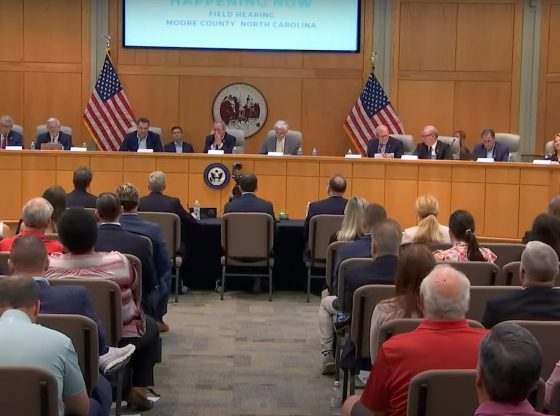




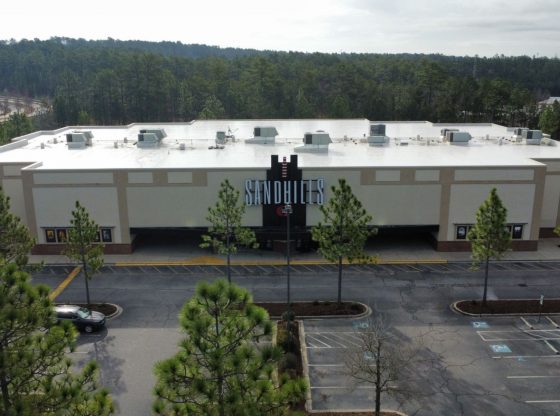



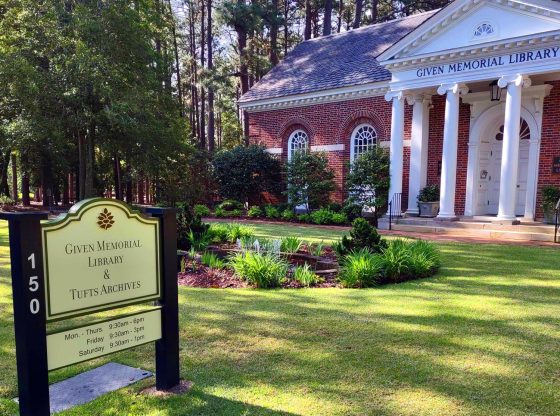
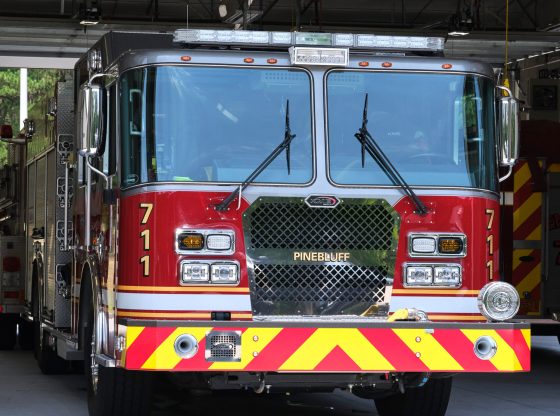
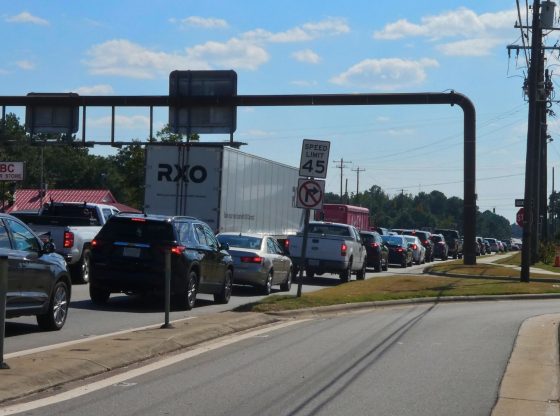
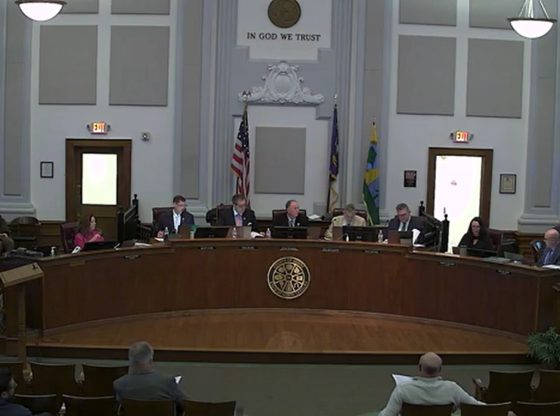





Comments
Comments are closed.